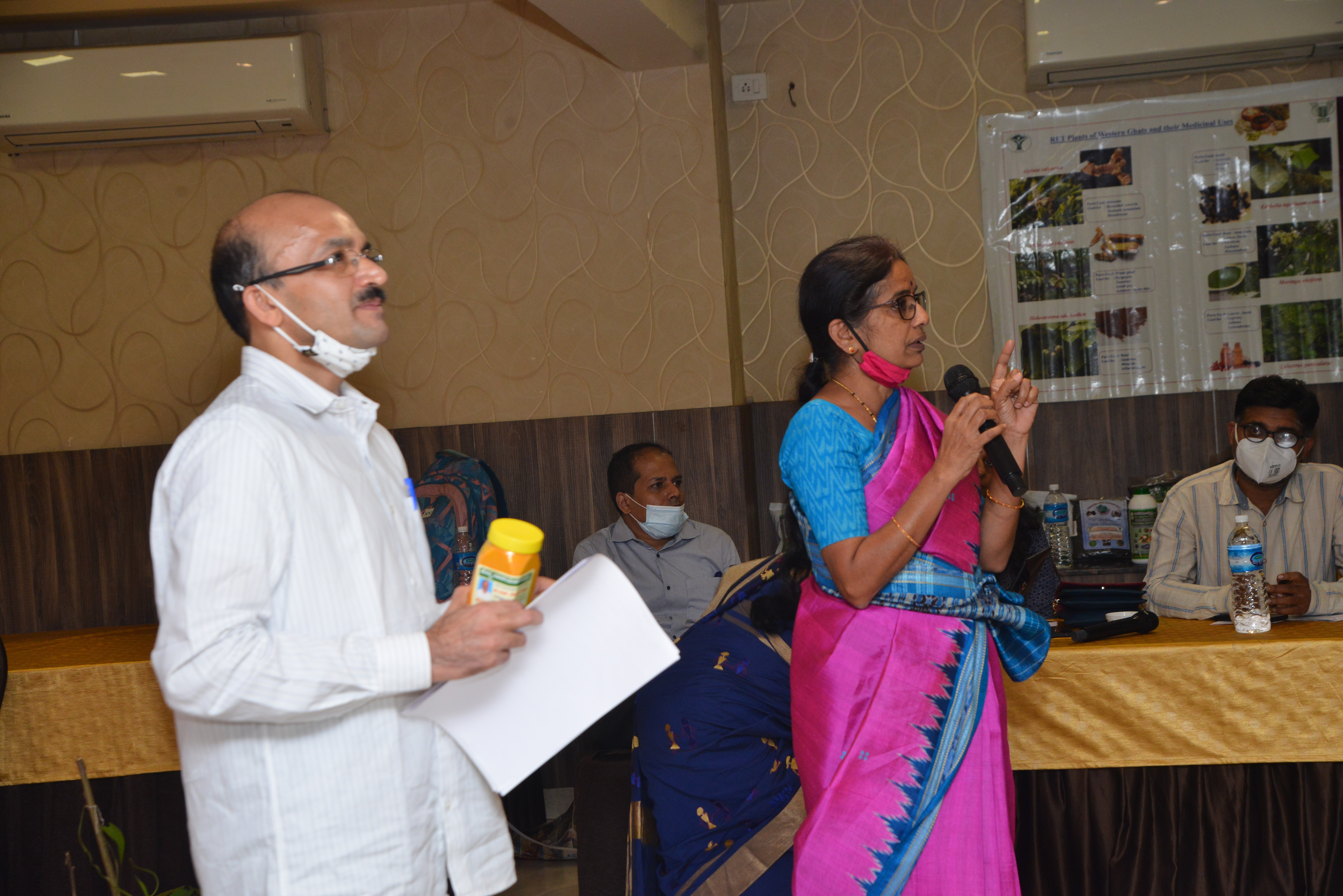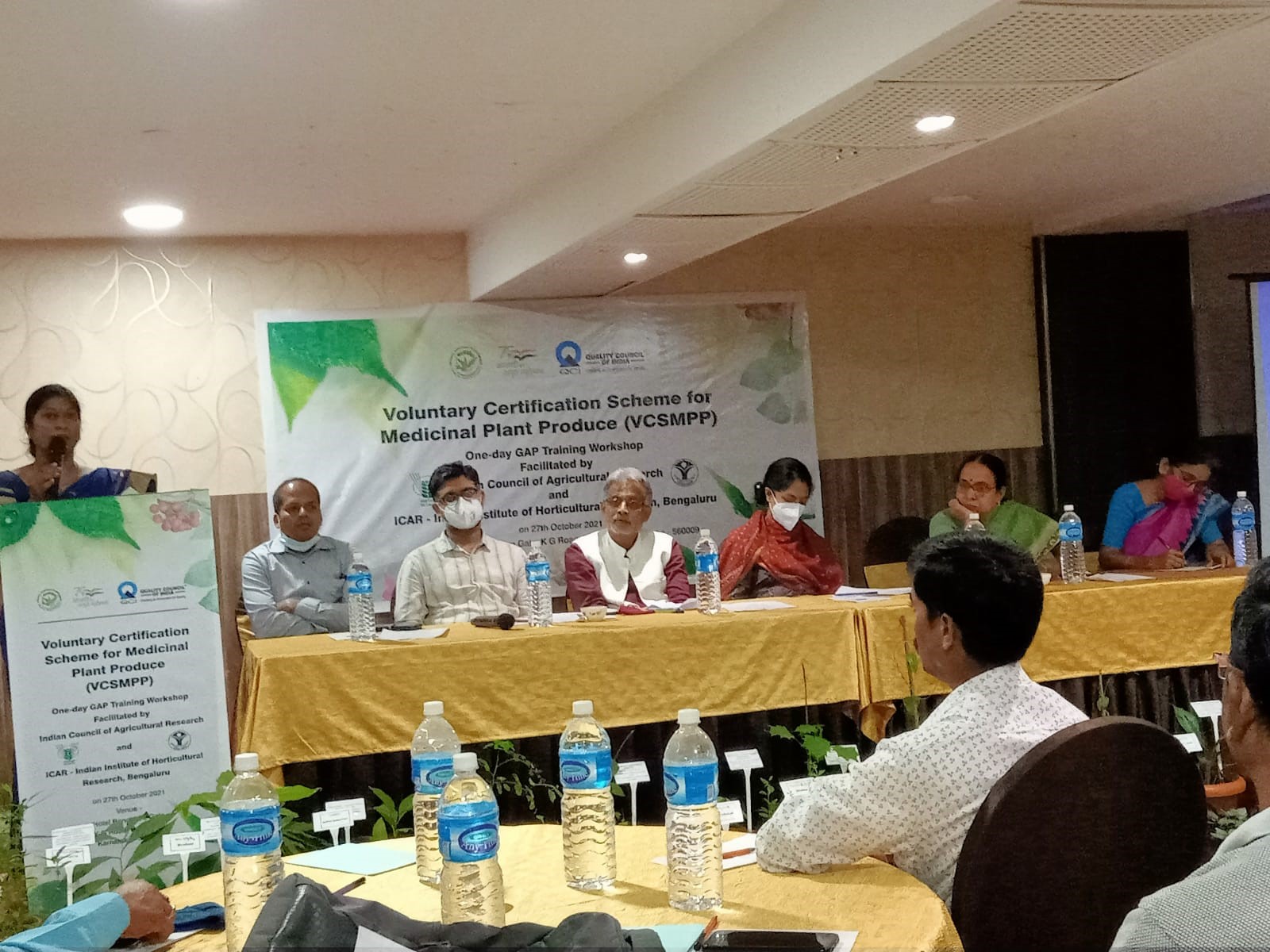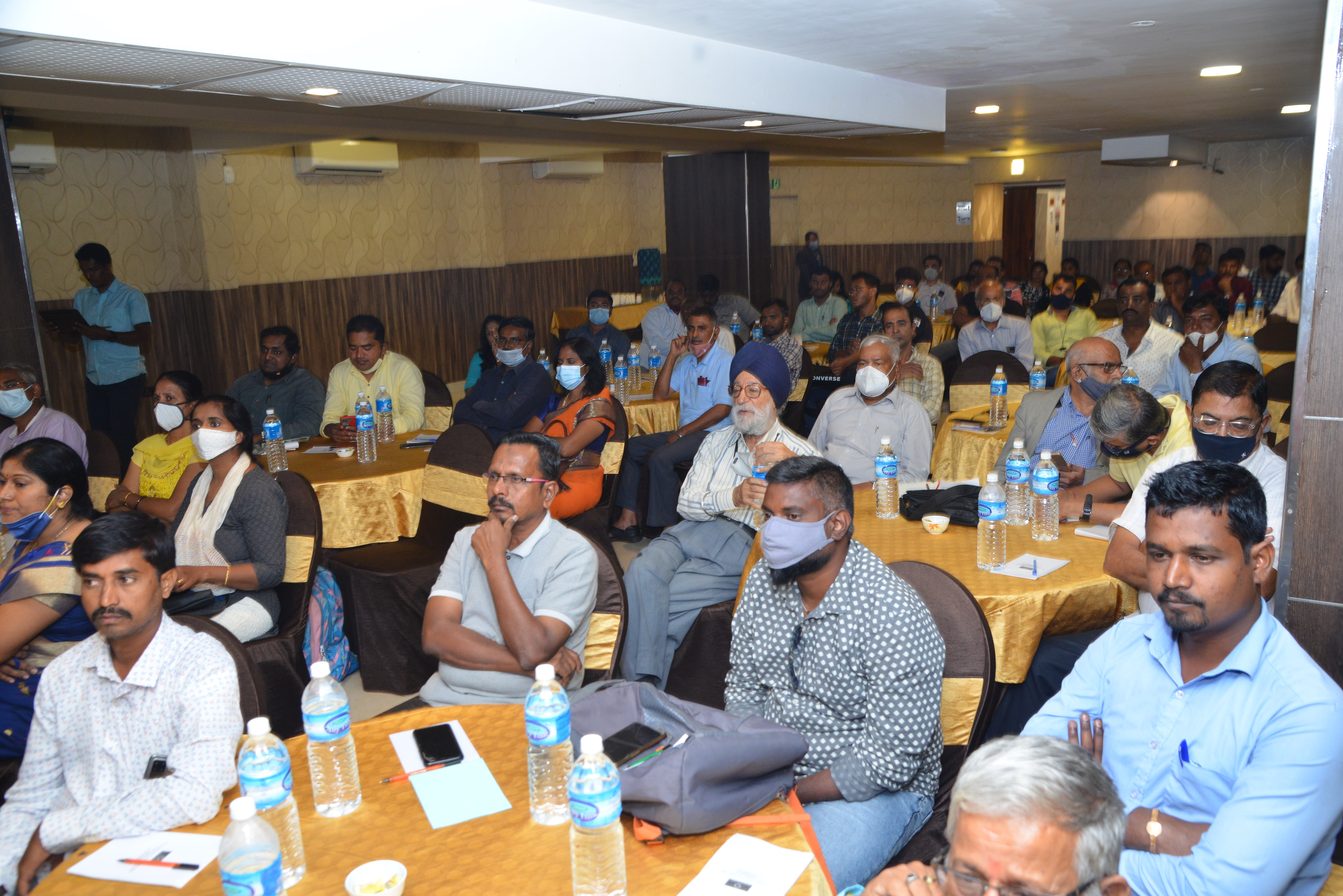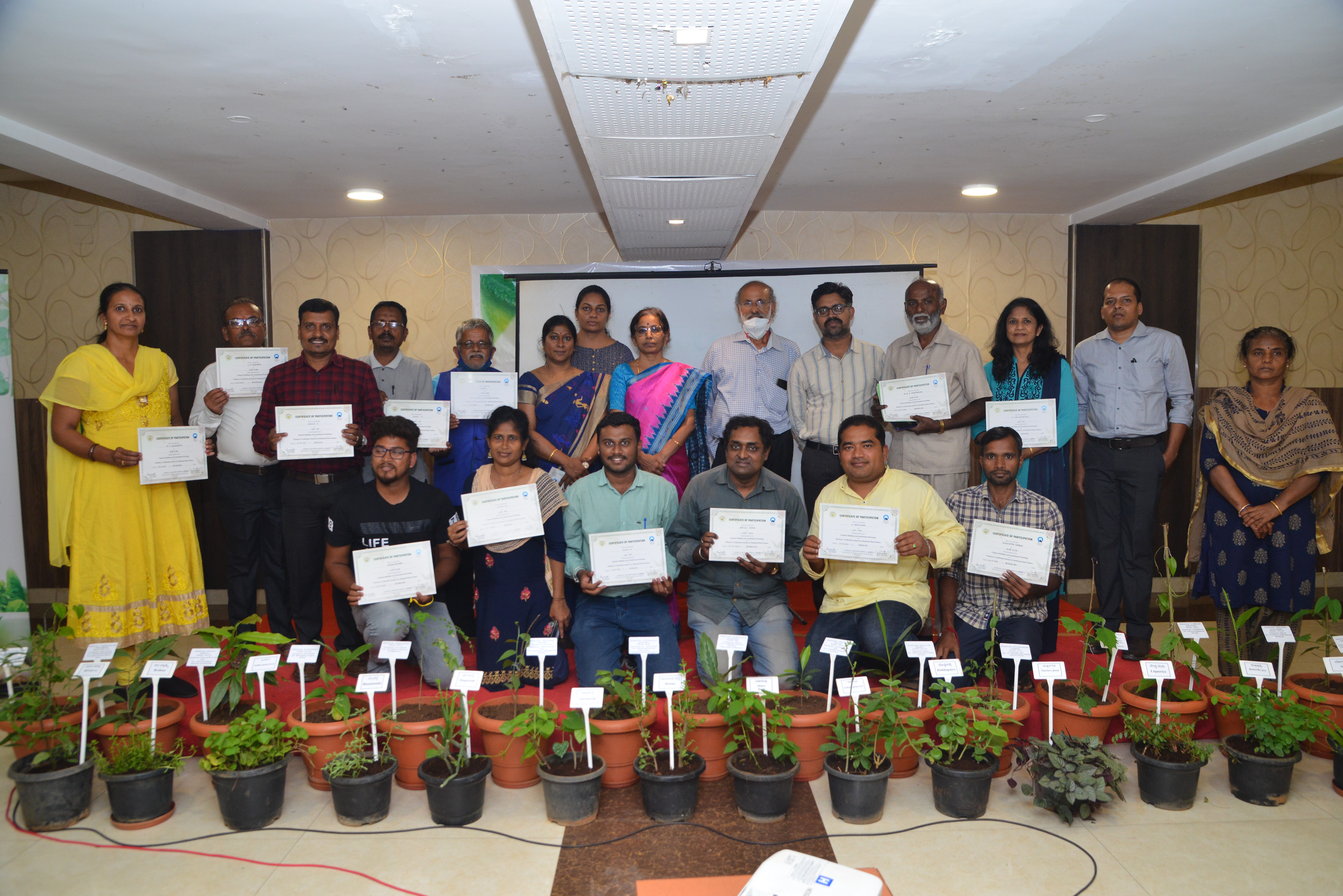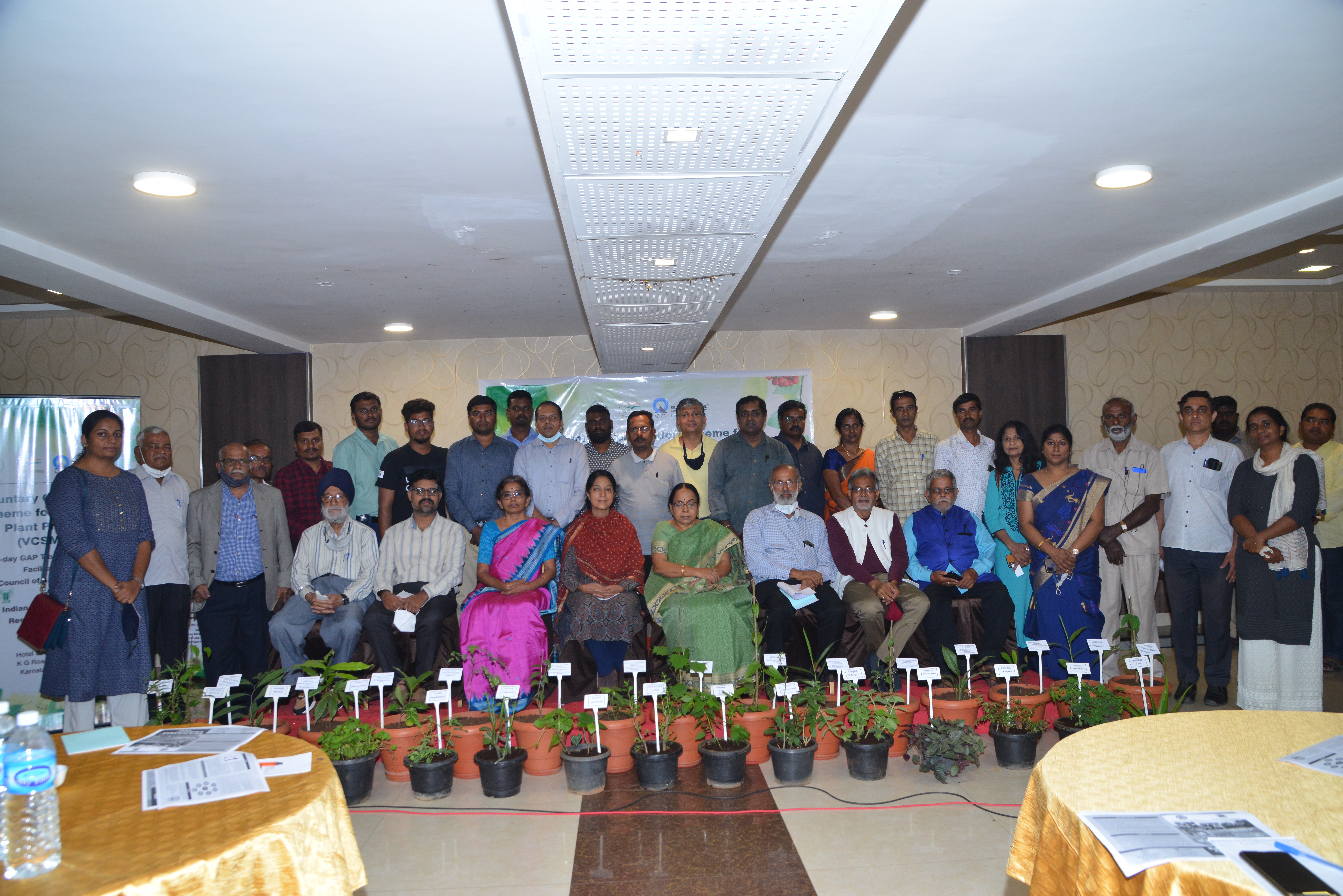
ICAR-Indian Institute of Horticultural Research in association with the Quality Council of India (QCI) and National Medicinal Plants Board, New Delhi organized one day training workshop on 27-10-2021 at Hotel Bangalore Gate, K.G. Road, Bengaluru. During the inaugural session Dr. Arul Jason, Project associate, Quality Council of India (QCI) welcomed the guests and participants and highlighted the activities and schemes of QCI and agenda behind the training program. Dr. Debi Sharma, Director (I/c), ICAR-IIHR stressed the importance of medicinal plants in the current scenario and explained about the medicinal crop varieties and technologies developed, herbal garden, nursery, conservation of RET species, quality analysis and NABL accredited Referral lab facilities at the Institute which farmers can make use of . Dr. C. Aswath, Head, Division of Flowers and Medicinal Crops, ICAR-IIHR stressed to maintain the quality of final products by adopting principles of Good Agricultural Practices. Dr. Prabhu from National Medicinal Plants Board highlighted the activities of NMPB in promotion and cultivation of medicinal plants. In her inaugural address Smt. Meenakshi Negi, IFS, Additional Principal Chief Conservator of Forests Compensatory Afforestation Management & Planning Authority – CAMPA, highlighted the association of medicinal plants in Indian mythology and history and problems faced by AYUSH industry with respect to availability of quality raw drug and problem of adulteration. Further, she emphasised the need for quality raw material production to sustain the shelf life and efficacy of the raw drug.
During the session, Mr. Narayan Upadhyay, Managing Director of Aditi Organics, Bengaluru explained about the voluntary certification criteria of GAP Standards. Dr. K. Hima Bindu, Dr. G.R. Smitha and Dr. M.R. Rohini from ICAR-IIHR served as experts in the workshop and deliberated on different aspects of Good Agricultural Practices including ecological environment of production sites, seeds and propagation material, management in cultivation, harvesting and primary processing, packaging, transportation and storage, quality control, personnel and equipment, documentation of medicinal plants and GAP for important medicinal crops. ICAR-IIHR varieties and technologies were also showcased in the program. Fifty two participants from different parts of Karnataka, Tamil Nadu and Andhra Pradesh participated in the training program. Various queries raised by the participants were addressed by the experts. The program ended with feedback and distribution of certificates to the participants.

